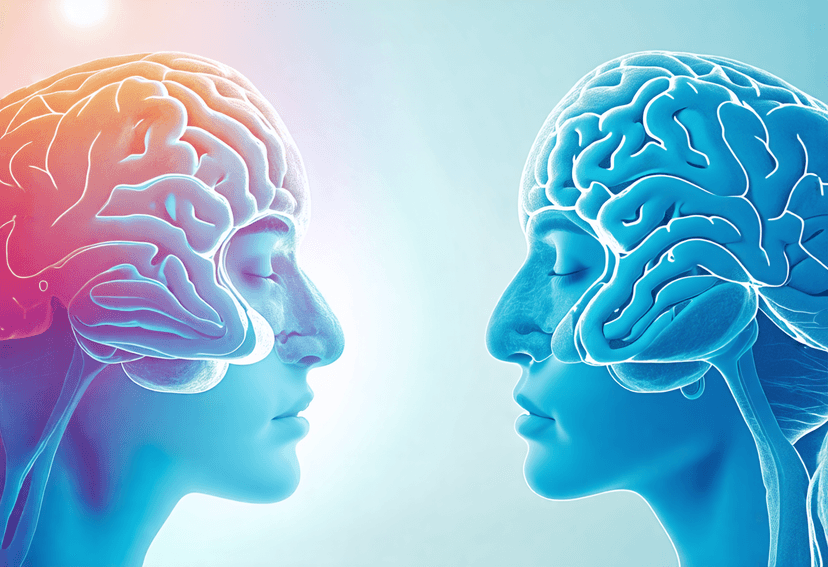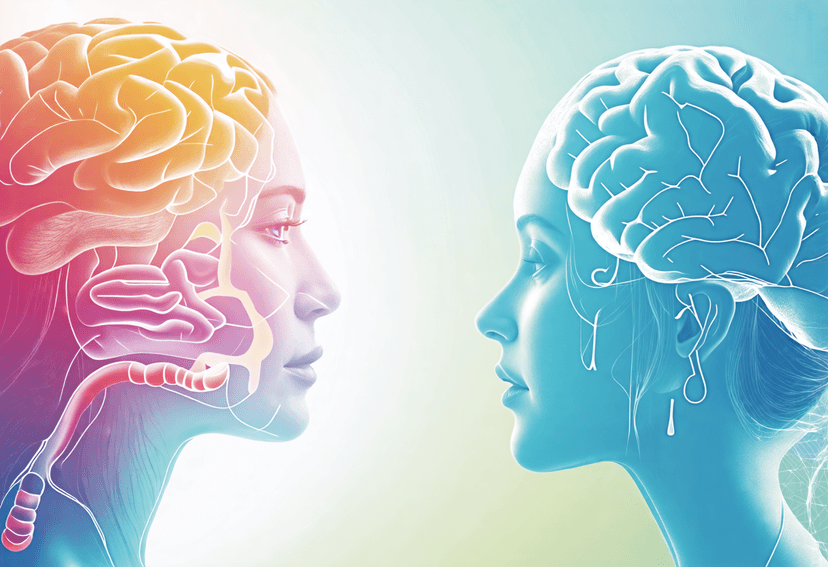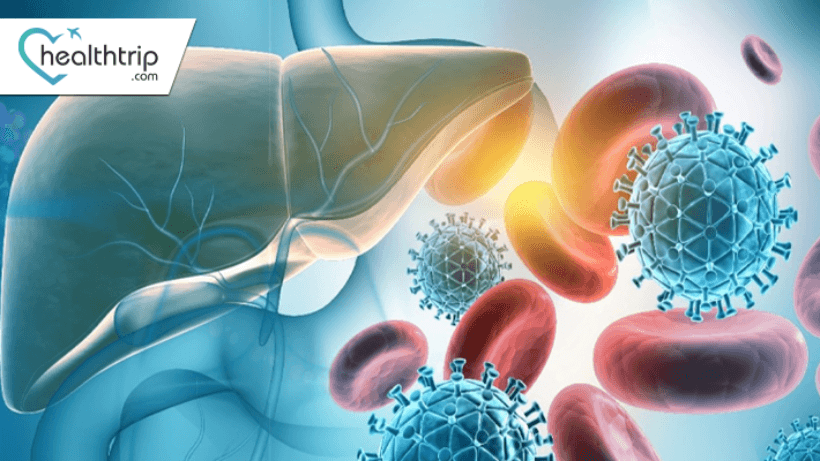
Know these 7 key hormones crucial for health
11 Aug, 2023
 Healthtrip Team
Healthtrip TeamIn this blog, we will delve into the intricate world of hormones, highlighting their significance and the global impact of their imbalances.Let's start
Most popular procedures in India
The Significance of Hormonal Balance in Human Health
Hormones are the body's chemical messengers, playing pivotal roles in regulating nearly every physiological process, from metabolism and immune function to mood and reproduction. Their importance is underscored by the vast number of individuals affected by hormonal imbalances worldwide.
Wellness Treatments
Give yourself the time to relax
Lowest Prices Guaranteed!

Lowest Prices Guaranteed!
- Millions of people worldwide suffer from hormonal imbalances related to diabetes, as per the World Health Organization.
- The American Thyroid Association notes that millions grapple with thyroid disorders in the U.S. alone.
- Chronic stress, often linked to cortisol imbalances, affects a significant portion of the global population.
- Conditions like Polycystic Ovary Syndrome (PCOS), tied to testosterone and estrogen imbalances, impact millions of women globally.
These figures underscore the vital role hormones play in our health, emphasizing the need for a deeper understanding and effective management.
1. Insulin
Function
Produced by the pancreas, insulin regulates glucose uptake from the bloodstream into cells. It's essential for maintaining blood sugar levels.
Health Implications:
- Deficiency: This is the hallmark of type 1 diabetes. The body doesn't produce enough insulin, leading to elevated blood sugar levels. Symptoms include frequent urination, increased thirst, extreme hunger, unexplained weight loss, fatigue, and blurred vision.
- Resistance: This is a primary feature of type 2 diabetes. The body produces insulin but doesn't use it effectively. Over time, the demand for insulin increases, leading to an overworked pancreas and eventually high blood sugar levels. Symptoms are similar to type 1 diabetes but may develop more gradually.
- Excess: Known as hyperinsulinemia, it can result from insulin resistance. Symptoms include low blood sugar, shakiness, dizziness, sweating, and rapid heartbeat.
Balance strategies
- Eat a balanced diet with whole grains, lean proteins, and healthy fats.
- Limit sugar and refined carbohydrates.
- Engage in regular physical activity.
- Maintain a healthy weight.
2. Cortisol
Function
Produced by the adrenal glands, cortisol is often referred to as the "stress hormone." It helps regulate metabolism, reduces inflammation, and controls the sleep-wake cycle.
Health implications
- Deficiency: This condition, known as Addison's disease, is characterized by fatigue, muscle weakness, weight loss, low blood pressure, and patches of dark skin. It can be life-threatening if not treated.
- Excess: This condition, known as Cushing's syndrome, results from prolonged exposure to high levels of cortisol. Symptoms include rapid weight gain, especially in the face, chest, and abdomen, purple stretch marks, thinning skin, and fragile bones.
Balance strategies
- Manage stress through relaxation techniques like meditation, deep breathing, and yoga.
- Ensure adequate sleep.
- Limit caffeine and sugar intake.
- Engage in regular physical activity.
3. Thyroid Hormones (T3 & T4)
Function
Produced by the thyroid gland, these hormones regulate the body's metabolism, energy production, and also play a role in bone growth and the development of the brain and nervous system in children.
Health Implications
- Deficiency: Hypothyroidism is the result of an underactive thyroid. Symptoms include fatigue, weight gain, constipation, dry skin, depression, and sensitivity to cold.
- Excess: Hyperthyroidism is the result of an overactive thyroid. Symptoms include unexpected weight loss, rapid or irregular heartbeat, sweating, irritability, and tremors.
Balance Strategies
- Consume a diet rich in iodine (found in seafood and iodized salt).
- Avoid excessive consumption of goitrogenic foods (like raw broccoli, cauliflower) which can interfere with thyroid function.
- Regular check-ups to monitor thyroid levels, especially if there's a family history of thyroid issues.
4. Estrogen
Function:
This primary female sex hormone is responsible for the development and regulation of the female reproductive system and secondary sex characteristics. It also has roles in bone health, mood regulation, and skin health.
Health Implications
- Deficiency: Commonly seen during menopause or with certain medical conditions. Symptoms include hot flashes, night sweats, mood swings, painful intercourse due to vaginal dryness, and irregular periods.
- Excess: Can be caused by various conditions, including tumors or genetic disorders. Symptoms include bloating, breast tenderness, decreased sex drive, irregular menstrual periods, mood swings, and headaches.
Balance Strategies
- Maintain a healthy weight, as fat cells can produce estrogen.
- Limit alcohol and caffeine.
- Eat a diet rich in phytoestrogens (like flaxseeds, soy).
- Regular exercise.
5. Testosterone
Function
The primary male sex hormone, testosterone is responsible for the development of male reproductive tissues and the promotion of secondary sexual characteristics like muscle and bone mass. It also plays a role in mood and energy levels.
Health Implications
- Deficiency in Men: Known as hypogonadism, it can result from testicular or pituitary gland issues. Symptoms include reduced libido, erectile dysfunction, low sperm count, reduced muscle mass, and fatigue.
- Deficiency in Women: Can lead to reduced libido, fatigue, and mood disturbances.
- Excess in Men: Can lead to reduced testicle size, infertility, high red blood cell count, and increased risk of certain cardiovascular issues.
- Excess in Women: Often seen in conditions like polycystic ovary syndrome (PCOS). Symptoms include hirsutism (excessive hair growth), acne, deepening of the voice, and menstrual irregularities.
Balance Strategies
- Maintain a healthy weight, as fat cells can produce estrogen.
- Limit alcohol and caffeine.
- Eat a diet rich in phytoestrogens (like flaxseeds, soy).
- Regular exercise
6. Growth hormone
Function:
Stimulates cell regeneration, growth, and maintenance. It's crucial for human development and maintaining healthy body tissue.
Health Implications:
- Deficiency in Children: Can lead to stunted growth, delayed puberty, and might result in a shorter stature than expected for their age.
- Deficiency in Adults: Can lead to fatigue, increased body fat, reduced muscle mass, decreased bone density (osteoporosis), mood disturbances, and cardiovascular complications.
- Excess in Children: Can cause gigantism, resulting in an abnormally large stature.
- Excess in Adults: Known as acromegaly, it can lead to enlarged hands, feet, and facial features, joint pain, thickened skin, and can increase the risk of type 2 diabetes and heart disease.
- Ensure adequate deep sleep, as growth hormone is primarily released during this phase.
- Engage in high-intensity interval training (HIIT).
- Limit sugar intake, as it can suppress growth hormone.
7. Progesterone
Function:
Works alongside estrogen to regulate the menstrual cycle and is crucial during pregnancy.
Health Implications:
- Deficiency: Can lead to irregular menstrual cycles, heavy bleeding, miscarriage in early pregnancy, and symptoms of PMS (premenstrual syndrome) or PMDD (premenstrual dysphoric disorder). A prolonged deficiency can also increase the risk of endometrial hyperplasia or cancer due to unopposed estrogen.
- Excess: While rare, it can lead to symptoms like fatigue, dizziness, bloating, mood swings, and excessive sleepiness. In pregnant women, extremely high levels might indicate a molar pregnancy or multiple pregnancies (like twins or triplets).
Balance Strategies:
- Manage stress, as chronic stress can lead to decreased progesterone.
- Consume foods rich in vitamin B6 and magnesium.
- Avoid overconsumption of foods that can increase estrogen, creating an imbalance with progesterone.
Hormones, often dubbed the body's chemical messengers, hold unparalleled significance in orchestrating a myriad of physiological processes. From regulating our energy levels and metabolic rate to influencing our mood and reproductive health, these seven key hormones underscore the intricate balance that sustains our well-being. Recognizing their roles and implications is paramount. As we navigate the complexities of modern life, understanding and maintaining hormonal balance becomes not just a matter of optimal health, but of living a life in harmony with our body's natural rhythms.
Related Blogs

The Connection Between Hormonal Imbalances and Sarcoma
Explore the link between hormonal imbalances and sarcoma cancer development

Women's Health and Hormones
Understanding the connection between hormones and holistic health

Understanding Liver Transplantation: Indian vs Global Trends
IntroductionLiver transplantation is a life-saving medical procedure that has witnessed

IVF-ICSI and Endocrine Health in UAE Women: What to Know
IntroductionIn the United Arab Emirates (UAE), infertility affects a significant

Epilepsy and Hormones: Neurosurgical Insights for Women
Epilepsy, a neurological condition characterized by recurrent seizures, affects individuals

Naturopathy and Stress Reduction: Finding Inner Balance
In today's fast-paced world, stress has become a common part










